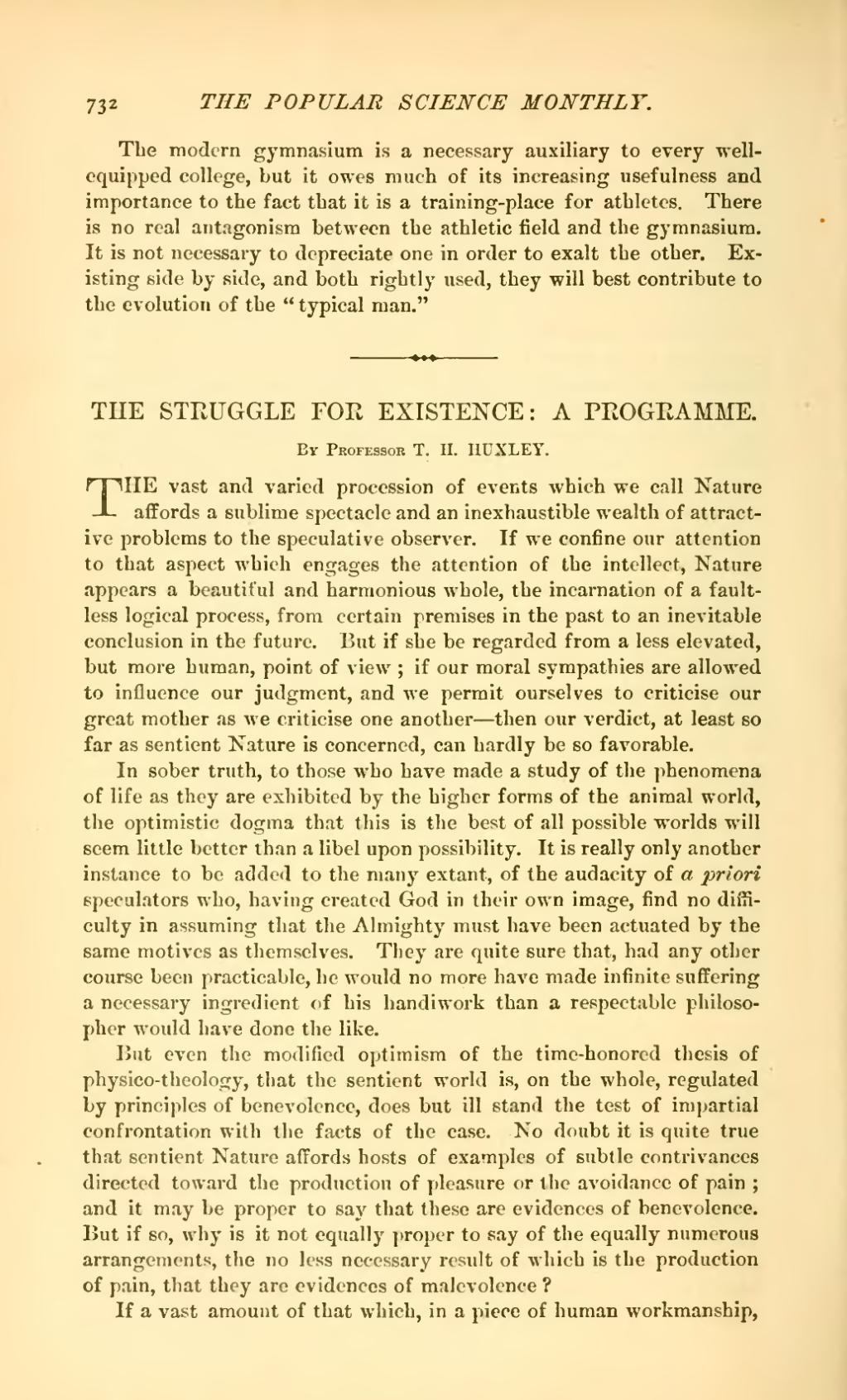The modern gymnasium is a necessary auxiliary to every well-equipped college, but it owes much of its increasing usefulness and importance to the fact that it is a training-place for athletes. There is no real antagonism between the athletic field and the gymnasium. It is not necessary to depreciate one in order to exalt the other. Existing side by side, and both rightly used, they will best contribute to the evolution of the "typical man."
| THE STRUGGLE FOR EXISTENCE: A PROGRAMME. |
By Professor T. H. HUXLEY.
THE vast and varied procession of events which we call Nature affords a sublime spectacle and an inexhaustible wealth of attractive problems to the speculative observer. If we confine our attention to that aspect which engages the attention of the intellect, Nature appears a beautiful and harmonious whole, the incarnation of a faultless logical process, from certain premises in the past to an inevitable conclusion in the future. But if she be regarded from a less elevated, but more human, point of view; if our moral sympathies are allowed to influence our judgment, and we permit ourselves to criticise our great mother as we criticise one another—then our verdict, at least so far as sentient Nature is concerned, can hardly be so favorable.
In sober truth, to those who have made a study of the phenomena of life as they are exhibited by the higher forms of the animal world, the optimistic dogma that this is the best of all possible worlds will seem little better than a libel upon possibility. It is really only another instance to be added to the many extant, of the audacity of a priori speculators who, having created God in their own image, find no difficulty in assuming that the Almighty must have been actuated by the same motives as themselves. They are quite sure that, had any other course been practicable, he would no more have made infinite suffering a necessary ingredient of his handiwork than a respectable philosopher would have done the like.
But even the modified optimism of the time-honored thesis of physico-theology, that the sentient world is, on the whole, regulated by principles of benevolence, does but ill stand the test of impartial confrontation with the facts of the case. No doubt it is quite true that sentient Nature affords hosts of examples of subtle contrivances directed toward the production of pleasure or the avoidance of pain; and it may be proper to say that these are evidences of benevolence. But if so, why is it not equally proper to say of the equally numerous arrangements, the no less necessary result of which is the production of pain, that they are evidences of malevolence?
If a vast amount of that which, in a piece of human workmanship,
